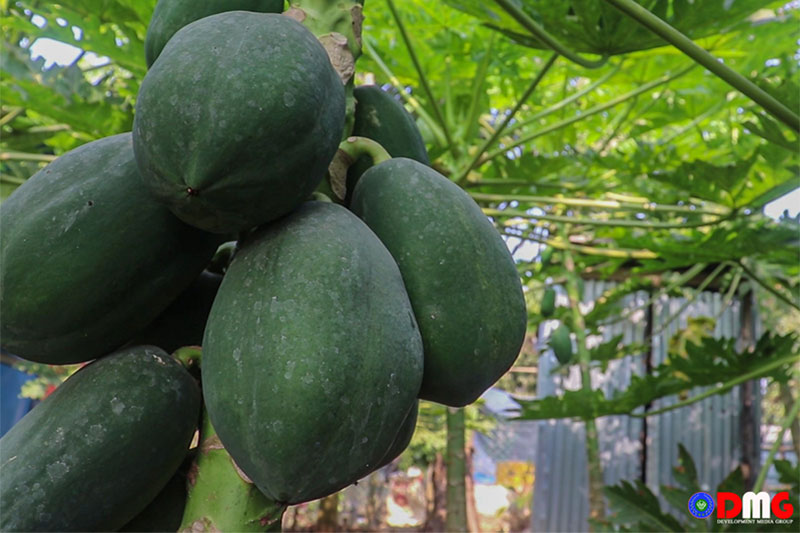- Junta expands naval presence along Arakan coast to regain lost territory
- Nearly 70 civilians and POW family members killed or injured by junta attacks in Arakan State in one month
- Junta accused of extorting money from detained Muslims in Sittwe
- Weekly Highlights from Arakan State (Jan 26 to Feb 1, 2026)
- Arakanese youth stabbed in Mae Sot urgently needs financial aid for medical treatment
Papaya growers encourage more farmers to take advantage of favourable market
Few farmers grow papaya in Arakan State though there is local demand for papaya and the fruit fetches good prices, according to papaya growers.
24 Jan 2023

DMG Newsroom
24 January 2023, Sittwe
Few farmers grow papaya in Arakan State though there is local demand for papaya and the fruit fetches good prices, according to papaya growers.
As supply does not meet local demand, Arakan State sellers have to buy papaya from Yangon and other parts of Myanmar.
Farmers in Arakan State lack knowledge about the papaya market, and have greater interest in growing cold season crops than perennial crops, according to papaya farmers.
“We encourage those who have land or who live near mountains to grow papaya,” said U Kyaw Tun Sein from Sittwe, who has engaged in commercial papaya farming for a decade.
An unripe papaya sells for between K300 and K500 in the local market in Arakan State, and a ripe papaya sells for between K1,000 and K5,000 depending on the size, according to papaya growers.

Though papaya is a perennial plant, it does not cost much to grow, and profits are also good, said U Kyaw Hla from Mingan Ward No. 13 in Sittwe, who grows papaya on a small scale.
“I sell my products to markets in Sittwe. My papaya fruits sell well,” he said.
But technical assistance is still needed to grow papaya plants more systematically in coastal Arakan State, which is prone to heavy rainfall and strong winds, said papaya grower Ko Than Soe from Kanee Village in Kyaukphyu Township.
“Heavy rainfall negatively affects papaya plants. Too much water is not good for papaya plants,” he said.
Papaya in Arakan State is consumed on its own as well as in drinks, jams, and traditional or Thai-style papaya salads.















.jpg)

